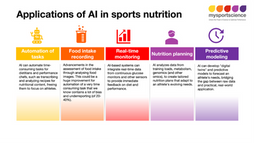3 gels per hour for the marathon?
- Asker Jeukendrup
- Jan 28, 2015
- 3 min read
Updated: Jun 14, 2023
There is no question that carbohydrate is the main fuel for a marathon. There is also no question about the fact that body carbohydrate stores are limited and become depleted towards the end of a marathon. Studies in endurance cycling and running have repeatedly demonstrated that carbohydrate feeding during exercise can provide extra fuel and enhance performance, but how much carbohydrate should a marathon runner take on board?

What are the recommendations?
Recommendations generally state that for exercise of 2-3h, intake should be around 60 grams per hour and for exercise lasting 2.5h or more, athletes should consider taking up to 90 grams per hour of a mixture of glucose and fructose. Marathon runners hardly ever meet these recommendations. In fact when we measured carbohydrate intake in marathon runners in a study in 2010, we observed that carbohydrate intake amongst runners varied substantially but was relatively low on average (around 35 grams per hour, equivalent to a gel every 2 hours).
Recommendations for exercise of 2-3h is ~60 grams per hour, and for exercise lasting >2.5h, up to 90 grams per hour of a mixture of glucose and fructose.
Should you take on 3 gels per hour?
A new study published in the International Journal of Sport Nutrition and Exercise Nutrition tested a strategy in which runners were targeting a combined intake of carbohydrate gels and water during the marathon of 0.750 L water (26 Oz.), 60 grams of carbohydrate, 60 milligrams of sodium and 90 milligrams of caffeine per hour. This is the equivalent of roughly 3 gels and hour with water. The control group was allowed to consume whatever they preferred (i.e. their normal race strategy).
Seven weeks before these runners competed in the Copenhagen Marathon the researchers asked the runners to complete a 10 kilometer (6.2 mile) run as fast as possible. Runners were then divided into two groups based on their finish times and grouped into pairs. One of the runners of each pair was assigned to the experimental group, the other was assigned to the control group. There were 14 runners in each group. The experimental group of runners were "forced" to use a nutriton strategy according to science based recommendations. The control group could consume whatever they preferred. The runners then practiced their nutrition strategies in a half marathon, 5 weeks before the marathon, and then lined up for the 2013 Copenhagen Marathon.
The study showed that the runners who had a science based nutrition plan were an average of 4.7 percent faster than those that ran with a self selected intake. The mean finishing time was 3:38:31 in the experimental group versus 3:49:26 in the control group.
The runners who had a science based nutrition plan were an average of 4.7% faster than those that ran with a self selected intake.
Did the runners experience gastrointestinal problems?
In contrast to common belief (and expectation), the relatively high intake of gels did not result in significant gastrointestinal problems. This is in line with an observation we made in a study in which we gave runners 3 gels per hour during a 16 kilometer (10 mile) run. No significant gut problems were reported and the runners themselves were surprised how well the higher carbohydrate intake was tolerated.
Takeaway messages...
Of course it is impossible to conclude from this new study that the finish times were better in one group than the other because of carbohydrate intake, caused by caffeine intake or because of another factor but one of the key messages that I would take away is that a higher carbohydrate intake can be achieved with gels and isn’t necessarily associated with the gut problems that athletes often think it may cause. The results of this study suggest that performance can be enhanced with a science based approach. I would add that it is crucially important that athletes practice this strategy.
Evaluation of the study
Strength:
Great real life relevance. These are the sorts of studies that we don’t have enough of.
Very relevant design with a comparison with a freely chosen strategy
Weakness:
No cross-over design so more difficult to make certain that the observed effect are due to gel intake. It could be that the gel group by chance contained better runners who were better prepared
There is no placebo for 3 gels
At least from the abstract it is not clear what the control group consumed
These types of studies are difficult to control and it is difficult to work out what exactly the intake was in both groups
Links to related blogs
References











